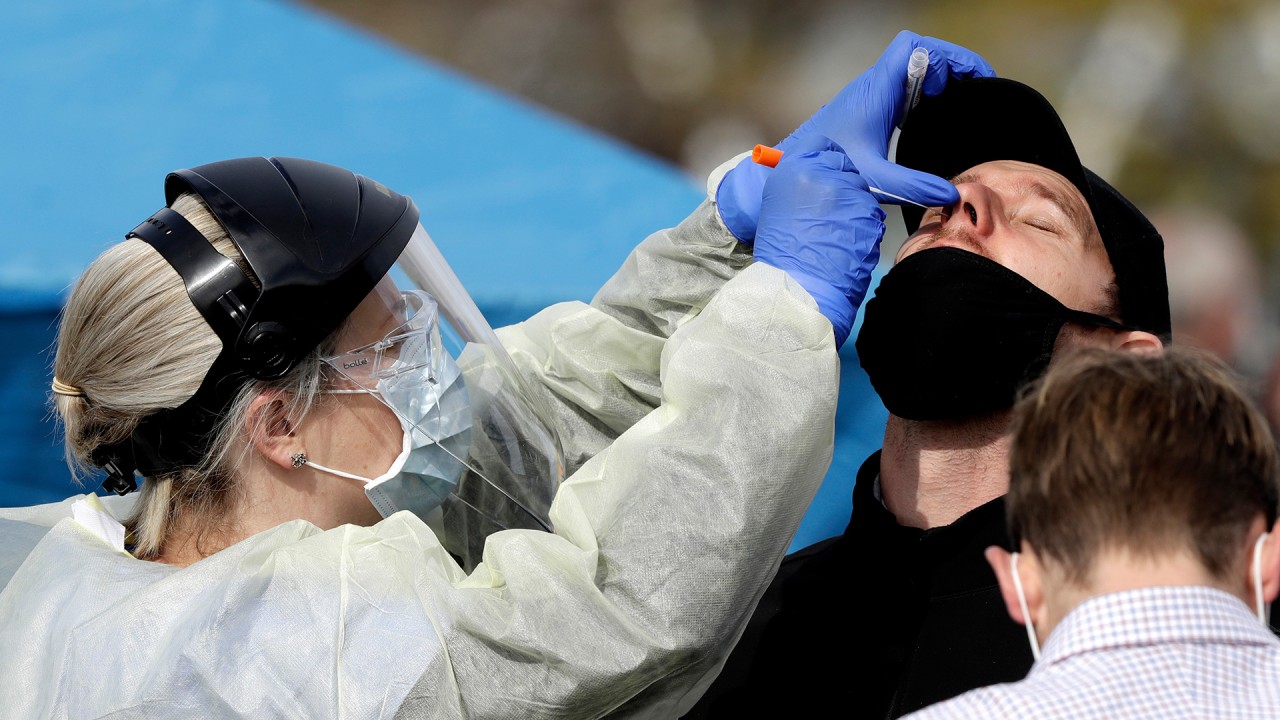
Elizabeth Gaines: Fortescue Metals’ first female CEO talks guiding the Australian iron ore miner through the coronavirus crisis
- Perth-born Elizabeth Gaines was appointed as the first female CEO of Australia’s Fortescue Metals in 2018
- The 56-year-old is one of only 12 female CEOs of Australia’s top 200 companies, but feels that allowed her to bring a different approach to dealing with the coronavirus
Every crisis has a silver lining, and for the first female CEO of Australian iron ore producer Fortescue Metals, the coronavirus outbreak has offered more evidence of how a woman’s touch is critical to leadership.
Situations like Covid-19 demand a different kind of approach to the tough and no-nonsense leadership style typically epitomised by male chief executives, in that compassion and honest communication are more effective when uncertainty abounds amid a health crisis, according to Elizabeth Gaines.
Perth-born Gaines is a rare sight in a sector dominated both by men generally and male bosses. In addition to that unique situation, Gaines, unlike her predecessors and peers, was not cultivated out of a mining Petri dish, having previously worked in financial services and as an accountant.
“If this [Covid-19] crisis proves anything, it is the effectiveness of a caring and decisive leader. You can be both of those [at the same time] … they can be complementary,” she told the South China Morning Post.
If you see which countries are doing better [dealing with Covid-19] than others, New Zealand, Germany, it demonstrates that women can both be caring and decisive and that doesn’t mean you’re not sufficient
Since the outbreak started, Fortescue has sent over 200,000 text messages with words of support to employees and stakeholders.
“The thing I have noticed during the coronavirus [outbreak] is the number of people, both male and female, who have said how much they value the honest and frequent communication. So that was one of the things we decided very early on, is that we need to find ways to frequently and in a very honest way share information with our team members, and we have always had a high level of communication … but we have ratcheted that up even further,” Gaines said.
Covid-19 is a time when things tend to work in reverse, she added. What is usually seen as a “weakness” in female leaders is seen as a strength, and what women naturally do well – looking at the bigger picture of “we” rather than “I” – provides comfort to concerned employees and stakeholders.
“In the past, [when] men show compassion [it is seen as a] a significant weakness … but if you see which countries are doing better [dealing with Covid-19] than others, New Zealand, Germany, it demonstrates that women can both be caring and decisive and … that doesn’t mean you don’t act with tough decisions,” Gaines said, referring to New Zealand Prime Minister Jacinda Ardern and German Chancellor Angela Merkel.

02:11
New Zealand’s coronavirus-free streak ends with two new imported cases
Gaines, who was appointed as chief executive in 2018 having joined the company in 2013 as first non-executive director and then chief financial officer, thinks softer values like compassion are needed not only in dealing with Covid-19 but in business relations in general.
During that time, Fortescue has become China’s lowest cost provider of seaborne iron ore. Last year, the Perth miner derived 93 per cent of its nearly A$10 billion (US$6.9 billion) in revenues from iron ore sales to China. Its second largest shareholder is also China state-owned steel group, Hunan Valin Group.
There will be a level of purity and policy that the government needs to consider, but from our perspective, these are long-standing relationships with people
But none of these are obstacles for Fortescue, because compassion, as the underlying driver for relationships, goes a long way, Gaines said.
“People are people. We know that during the beginning of the coronavirus [outbreak] people in China were significantly impacted, which is why we supported converting a stadium in Wuhan into a recovery centre, we sent PPE equipment to China and we have seen that come back once Australia started to feel the impact of the pandemic. This is about people,” she said.
“There will be a certain level of purity and policy that the government needs to consider, but from our perspective, these are long-standing relationships with people.”
But while Gaines has been able to maintain her values while delivering bumper revenues and profits in the 2019 financial year, corporate Australia is still behind in female diversity in leadership, especially when leadership clubs continue to be dominated by men, with Fortescue an exception rather than the rule, she said.
Tackling unconscious bias is important, but we need to do more for women to feel empowered so they don’t suffer from the ‘impostor syndrome’
Gaines pointed to the list of “Peters” and “Johns” in the names of CEOs of the top 200 public companies in Australia as evidence.
“We haven’t come as far as I thought we would’ve as a society, broadly. I thought by now we wouldn’t be having these conversations,” she said.
Representation of women in top leadership in Australian companies remains scarce and stagnant, as according to Chief Executive Women’s (CEW) ASX200 Senior Executive Census, the number of women CEOs in the top 200 listed companies fell 1 per cent to just 12 between 2018 and 2019.
Unconscious bias remains at the heart of the problem where men continue to pick men as their successors, but it is not the entire problem, according to Gaines.
“Tackling unconscious bias is important, but we need to do more for women to feel empowered so they don’t suffer from the ‘impostor syndrome’ [of feeling inadequate despite evidence of success] … women need to be encouraged to have that confidence,” she said.

